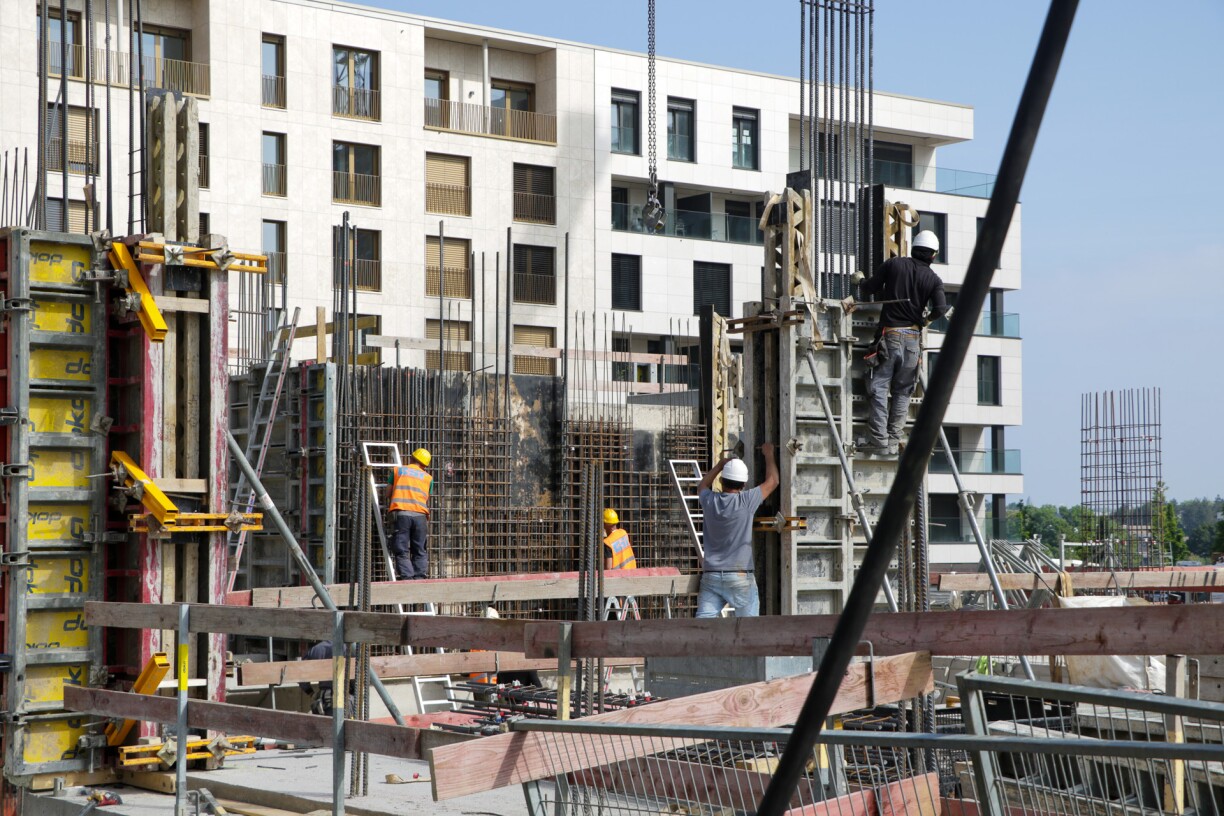
The Luxembourg property market continues to face a complex mix of challenges: renewed activity in existing homes, a stagnant off-plan sales sector, persistently high prices, and unwavering interest rates. This confluence of factors raises questions about the future of a market under strain for several years.
While the mantra that “the fundamentals remain solid” has persisted for three years, a significant recovery in off-plan sales (VEFA) has failed to materialise. Data from the Housing Observatory for the first half of 2025 shows an increase from 2024 but levels that are “still far from pre-crisis levels”, confirms Julien Licheron, a researcher at the Luxembourg Institute of Socio-Economic Research (LISER).
This stagnation presents a major problem for a country that welcomes between 9,000 and 10,000 new residents annually. Based on the Observatory’s data, Pierre Clément, director of Nexvia, estimates that only about 1,000 off-plan sales have been completed in the last three years – a figure three times lower than the annual average between 2017 and 2021.
The consequence is that very little new housing has been built since late 2022, a situation confirmed by the Chamber of Skilled Trades and Crafts. With the recent expiration of the national housing package, experts and officials are seeking solutions to revive the sector. Minister of Housing Claude Meisch has recently pointed to alternative models to off-plan sales.
Read also: Minister Meisch cautions that economic uptick could overheat housing market
However, this approach is met with skepticism. Clément does not believe in alternatives, stating, “It’s a model that exists everywhere [...] I don’t think we’re going to reinvent the wheel in Luxembourg.” In his view, the primary obstacle to recovery is the high deposit required from investors to finance new developments.

Since 2021, banks have been mandated to request a 20% deposit from investors or those buying a second home – a measure designed to cool an overheated market.
This has fundamentally altered the financial calculus for investors. “Before 2021, you could finance [buy-to-let investments] with almost no deposit. Today, with additional fees, you have to put down 25% of the price in cash”, explained Clément. “For a one-bedroom flat today, we’re talking around €600,000. That’s €150,000 you have to invest [...] It’s a terrible constraint”, he noted.
This view is shared by Yann Gadéa, head of brokerage at atHome Finance, who noted that only first-time buyers are exempt from such substantial deposits. He argues that reviving the off-plan market requires facilitating buy-to-let investment. “There are people who will never be able to buy. So other people need to be able to invest to house them”, Gadéa commented.
However, reversing the loan-to-value (LTV) rules is not considered a simple solution. Licheron pointed out that the regulation was deliberately adopted to contain property price inflation. Instead, he advocates for a “supply-side policy”, such as taxing building land to increase market supply. While the Ministry of Housing is preparing reforms to this effect, their impact may not be felt until after 2034.
With the deposit rules likely to remain, the new-build market’s difficulties are expected to persist. Clément predicts a sectoral “reset”, where new developers will acquire land at “very different prices” to those in 2018, fundamentally reshaping the market’s future.